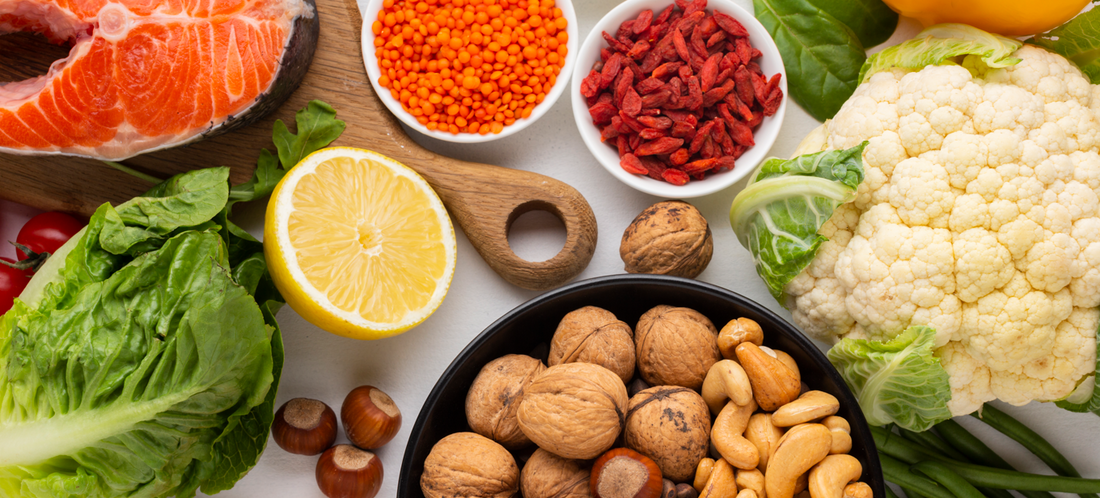Bursitis can cause significant discomfort and hinder daily activities. While traditional treatments include rest, ice, compression, elevation, and medications, diet can also be a powerful tool in managing inflammation and promoting recovery. By understanding and incorporating anti-inflammatory foods into your diet, you can help mitigate the symptoms of bursitis and enhance your overall well-being.
The Connection Between Diet and Inflammation:
Inflammation is a natural response of the body’s immune system to injury or infection. However, chronic inflammation can lead to various health issues, including bursitis. Certain foods have been shown to either promote or reduce inflammation in the body. Therefore, making informed dietary choices can significantly impact the management of bursitis.
Anti-Inflammatory Foods:
Fruits and Vegetables:
-
Berries (blueberries, strawberries, raspberries): Rich in antioxidants and vitamins, berries help reduce inflammation and oxidative stress.
-
Leafy greens (spinach, kale, collard greens): High in vitamins and minerals, leafy greens contain powerful anti-inflammatory compounds.
-
Broccoli: Contains sulforaphane, an antioxidant that fights inflammation.
-
Avocados: Packed with healthy fats and antioxidants that reduce inflammation.
Healthy Fats:
-
Olive oil: Extra virgin olive oil is rich in oleocanthal, a compound with similar anti-inflammatory properties to ibuprofen.
-
Nuts (walnuts, almonds): Contain healthy fats, fiber, and antioxidants that combat inflammation.
-
Fatty fish (salmon, mackerel, sardines): High in omega-3 fatty acids, which are known to reduce inflammation and joint pain.
Whole Grains:
-
Quinoa, brown rice, oats: These grains provide fiber and essential nutrients while reducing inflammatory markers.
Herbs and Spices:
-
Turmeric: Contains curcumin, a potent anti-inflammatory compound.
-
Ginger: Has anti-inflammatory and antioxidant properties that can help reduce joint pain.
Legumes:
-
Beans (black beans, lentils, chickpeas): High in fiber and protein, beans also contain antioxidants and anti-inflammatory compounds.
Green Tea:
-
Rich in polyphenols and antioxidants, green tea helps reduce inflammation and supports overall health.
Foods to Avoid:
While incorporating anti-inflammatory foods is beneficial, it’s equally important to avoid foods that can exacerbate inflammation.
Sugary Foods and Beverages:
-
Sodas, candies, and desserts: High sugar intake is linked to increased inflammation in the body.
Refined Carbohydrates:
-
White bread, pasta, and pastries: These foods can spike blood sugar levels and promote inflammation.
Processed and Red Meats:
-
Sausages, hot dogs, and red meat: These foods contain high levels of saturated fats and inflammatory compounds.
Trans Fats:
-
Found in many fried and processed foods, trans fats can increase inflammation and negatively impact heart health.
Alcohol:
-
Excessive alcohol consumption can lead to increased inflammation and other health issues.
Dietary Strategies for Bursitis Management:
Balanced Diet:
-
Ensure a balanced diet rich in fruits, vegetables, whole grains, healthy fats, and lean proteins.
Hydration:
-
Stay hydrated by drinking plenty of water, which helps maintain joint lubrication and overall health.
Meal Planning:
-
Plan meals to include a variety of anti-inflammatory foods. Incorporate colorful fruits and vegetables, and choose whole grains and lean proteins.
Mindful Eating:
-
Pay attention to portion sizes and avoid overeating. Eating mindfully can help maintain a healthy weight, reducing pressure on joints.
Supplements:
-
Consider supplements like omega-3 fatty acids, curcumin, and ginger extract after consulting with a healthcare provider.
Dietary choices can significantly impact the management of bursitis. By incorporating anti-inflammatory foods and avoiding pro-inflammatory ones, you can help reduce inflammation, alleviate pain, and support joint health. While diet alone may not cure bursitis, it is an essential component of a comprehensive management plan that includes medical treatment and lifestyle modifications. Embracing a healthy, balanced diet can enhance your overall well-being and improve your quality of life.




